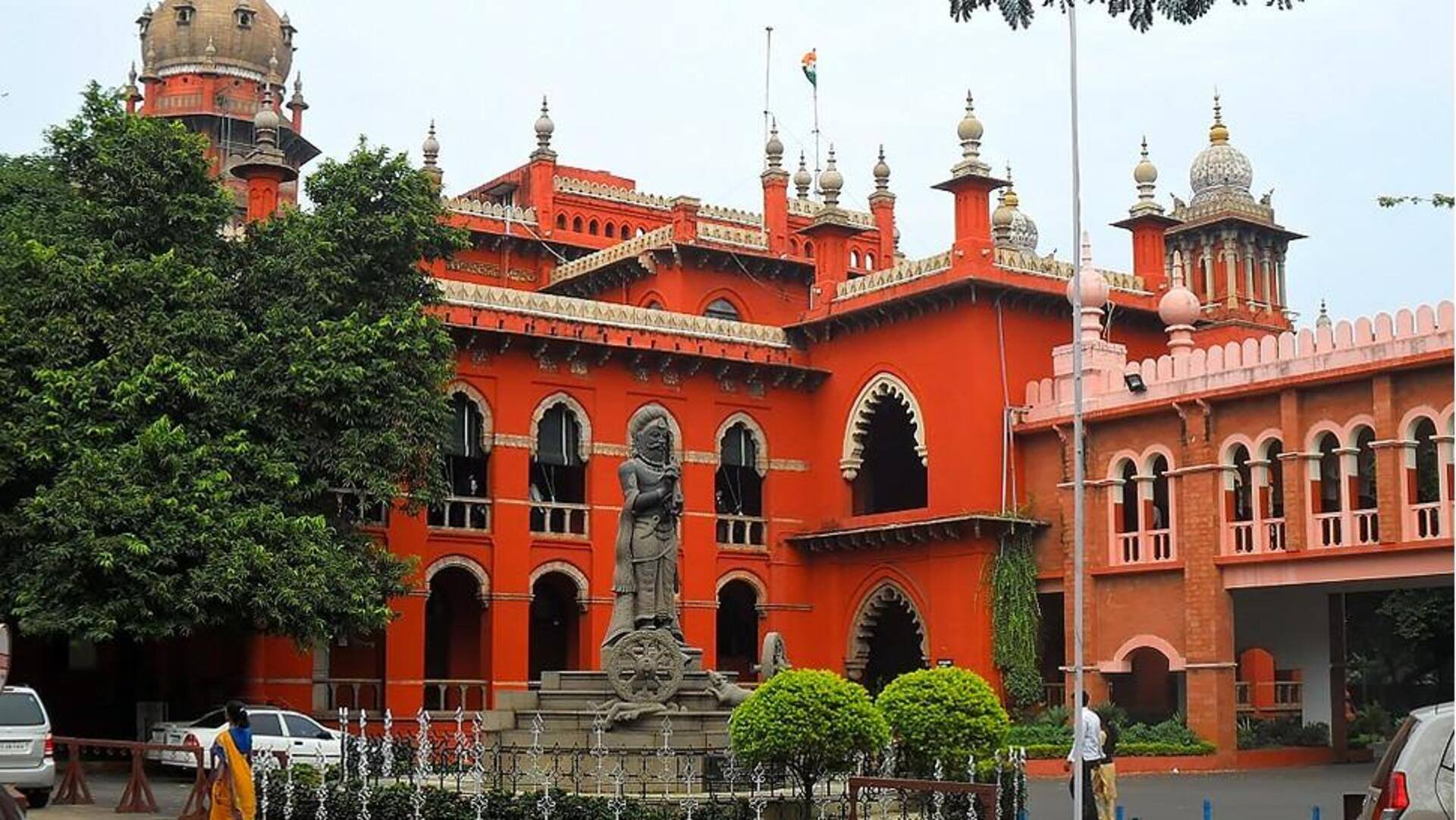
Sanatan Dharma not solely about promoting casteism, untouchability: Madras HC
What's the story
Amid the ongoing row over Sanatan Dharma, the Madras High Court reportedly stressed that free speech should not devolve into hate speech, especially concerning matters of religion.
It is worth noting that the HC's remarks came in the wake of the recent controversial comments made by Dravida Munnetra Kazhagam (DMK) leader and Tamil Nadu minister Udhayanidhi Stalin against Sanatana Dharma, which sparked a political row.
Context
Why does this story matter?
In a recent public address, Udhayanidhi compared Sanatan Dharma to diseases like dengue, malaria, and COVID-19. The DMK leader's remark received wide criticism from several Bharatiya Janata Party (BJP) leaders, with Prime Minister Narendra Modi saying it needed a "proper response."
Furthermore, Udhayanidhi's remarks have put the opposition's Indian National Developmental Inclusive Alliance (INDIA) on shaky ground ahead of the 2024 Lok Sabha elections.
Details
Here's what HC said on row
In an order, Justice N. Seshasayee stated that the HC is conscious of "the very vociferous and at times noisy debates on pro and anti-Sanatan Dharma," and it could not help but contemplate with genuine worry about what is going on.
"Somewhere, an idea appears to have gained ground that Sanatana Dharma is all about....promoting casteism and untouchability," the court added.
He observed that Sanatan Dharma is a set of eternal duties, including duty to the nation, king, parents, etc.
Information
Reason behind Madras HC's remarks
As per India Today, the court's remarks came while hearing a plea pushed by one Elangovan challenging a circular issued by a local government arts college asking its students to share their opinions on the "Opposition to Sanathana" topic. Since the circular had already been withdrawn, the court advised the college to instead have the students ponder the problems of untouchability and how, as citizens of society, they could eradicate it.
What Next?
Untouchability in country of equal citizens cannot be tolerated: HC
"Untouchability in a country of equal citizens cannot be tolerated, and even if it is seen as permitted somewhere within the principles of 'Sanatana dharma', it still cannot have a space to stay, since Article 17 of the Constitution has declared that untouchability has been abolished," the court further said.
"Therefore, untouchability, either within or outside Sanatana Dharma can no longer be Constitutional though sadly it still exists," the court added.
Article 19
Free speech not an absolute right: Court
The court also noted that, while Article 19(1)(a) of the Constitution gave a fundamental right to free speech, it was critical to emphasize the need to be well informed, as it added value to what was being stated.
Noting that free speech is not an absolute right, the court stated that it is necessary to ensure that no one is hurt when it pertains to religion.
Know more
Free speech cannot be hate speech, says court
"Therefore, when free speech is exercised in matters pertaining to religion, it is necessary for one to ensure that no one is injured," he asserted. In other words, free speech cannot be hate speech," the court said.
"The users of free speech must not ignore these aspects while exercising their right. If this is ignored, the course of any debate will get derailed, and the objective behind it will lose significance," it added.